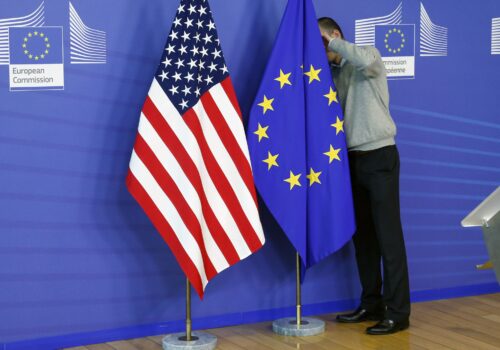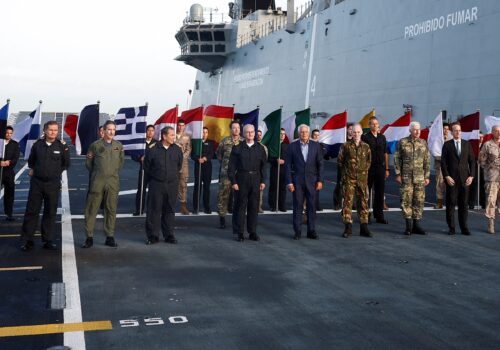What the European Parliament hearings are revealing about the next European Commission
Hear ye, hear ye. While Washington’s attention has been on the US election and incoming administration, on the other side of the Atlantic, members of the European Parliament began holding hearings in Brussels on November 4 to grill the European Commission’s next leadership team. All twenty-six of the European commissioners-designate must get approval from the European Parliament to take up their posts. To unpack the two weeks of hearings, Atlantic Council experts break down what happened and what the next Commission might mean for the European Union (EU) and the future of transatlantic relations.
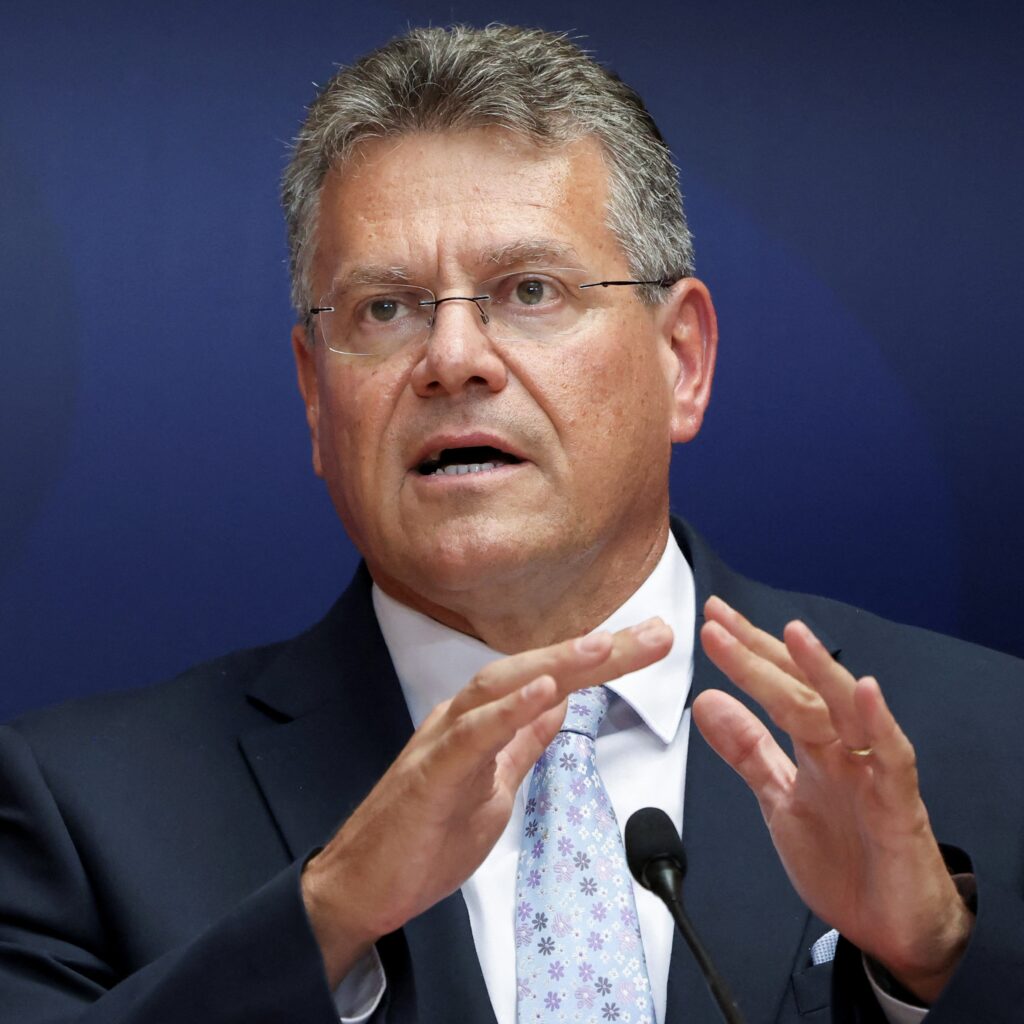
Maroš Šefčovič
Commissioner-designate for trade and economic security; interinstitutional relations and transparency
On US-EU trade relations, trade Commissioner-designate Maroš Šefčovič’s hearing testimony on November 4 was a tale of two trade policies: one forward-leaning and positive, and the other more reactive and defensive.
On the one hand, Šefčovič spoke of expanding trade agreement partnerships around the world, growing EU exports and trade, removing trade barriers, and promoting free “and fair” trade. With a focus on the developing world, he spoke of new-style flexible and agile trade agreements that are “fit for purpose.”
On the other hand, with respect to the United States, Šefčovič spoke only of “revamping” the US-EU Trade and Technology Council (TTC) and addressing bilateral disagreements over steel and aluminum, civil aviation, and the Inflation Reduction Act. Asked to clarify what he meant by “revamping,” he said that the TTC may need additional work streams and working groups to consult “better” about each other’s initiatives. Absent was any reference to a positive or enhanced trade-and-investment agenda with the United States, which a “revamping” of the TTC could also have accomplished, for instance, by grouping trade and investment discussions in a more coherent package with more sharply defined goals. With ten working groups and several work streams within each, the TTC is already cumbersome; adding more groups and streams to the mix does not obviously add value.
Šefčovič also discussed “rebalancing” the EU’s relationship with China and combatting unfair trade practices, without mentioning the significant overlap between the United States and the EU on these issues and the potential for transatlantic cooperation on them.
Speaking prior to November 5, it may be that Šefčovič adopted a cautious stance vis-à-vis the United States and transatlantic relations in light of the US election. It will be up to the next administration to work with the Commission to develop a more affirmative trade agenda than simply adding work streams and avoiding trade wars.
—L. Daniel Mullaney is a nonresident senior fellow with the Atlantic Council’s Europe Center and GeoEconomics Center. He served as assistant US trade representative for Europe and the Middle East in the Office of the United States Trade Representative from 2010 to 2023. Read his recent essay “Closing the gap between Mars and Venus on trade.”
***
Trade took center stage in the European Commission confirmation hearings on November 4, with Maroš Šefčovič—a seasoned EU official from Slovakia and close confidant of European Commission President Ursula von der Leyen—nominated as the commissioner-designate for trade and economic security. In his expanded role, Šefčovič’s portfolio emphasizes economic security and competitiveness over traditional free trade agreements.
During his hearing, Šefčovič labeled China as the EU’s “most difficult trade partner” and pledged a more assertive stance on issues such as Chinese overcapacity threatening European industries. He warned against the “weaponization of economic ties” by China and vowed to advance von der Leyen’s de-risking agenda by reducing dependencies and countering Chinese coercion. As part of a new economic security doctrine, he also aims to strengthen strategic economic partnerships with likeminded partners in India, the Indo-Pacific, and Latin America. At the same time, Šefčovič emphasized that the EU has no interest in sparking a trade war with China despite the recent tariffs against Chinese electric vehicles.
A well-known interlocutor in Washington with strong Republican ties, Šefčovič’s clear language on China will be music to the ears of many. He referred to the United States as the EU’s most “natural partner” and promised to put forward an offer for cooperation and partnership with the new US administration. It will include a proposal for a revamped US-EU Trade and Technology Council and a call to finish a critical minerals agreement, but also a warning that the EU will defend its own interests.
Washington should view the incoming EU trade commissioner’s comments as reflecting a strong desire in the EU to work with the new US administration, including on China-related economic security matters. But they also reflect that Brussels will not shy away from defending its own interests if push comes to shove.
—Erik Brattberg is a nonresident senior fellow at the Atlantic Council’s Europe Center. He is also senior vice president in the Europe practice of the Albright Stonebridge Group, part of DGA Group. Read his recent essay “Reenergizing transatlantic trade dynamics over the coming years.”
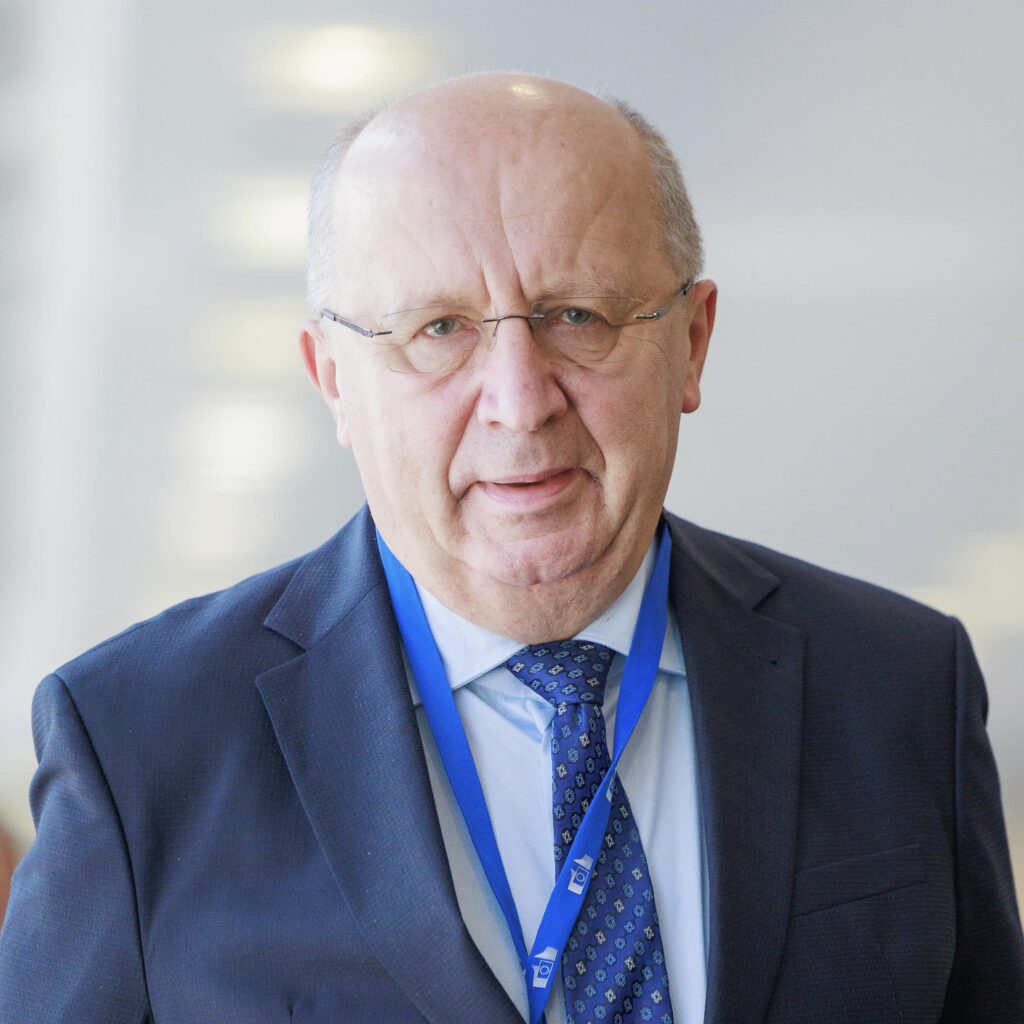
Andrius Kubilius
Commissioner-designate for defense and space
Andrius Kubilius has ambitious plans as the EU’s first-ever commissioner-designate for defense and space. Kubilius laid out a bold agenda during hearings on November 6 at the European Parliament and in prepared responses. The two-time Lithuanian prime minister presented his priorities, which, broadly speaking, revolve around securing financing for EU defense initiatives and improving the fractured European defense industry. He discussed “European projects of common interest,” such as air defense and counter-drone investments, and he pledged to immediately begin implementing the European Defence Industry Program. On space, Kubilius highlighted the need to improve EU launch facilities and the desire to ramp up public-private space cooperation, like NASA and SpaceX have done.
At the same time, Kubilius’s plans for integrated NATO-EU capability lists and joint stockpiles of munitions lacked clarity. He has the unenviable task of creating a “European Defence Union,” as von der Leyen assigned him in his mission letter. Kubilius defended Europe’s relationship with the United States against skeptical members of the European Parliament, and he was clear-eyed that Europe needs to invest in defense because of Russia, not because the United States is asking it to do so.
Kubilius will have another opportunity to explain his plans if confirmed, as he owes the Commission a white paper on defense initiatives within his first one hundred days as commissioner. Given this new portfolio, Kubilius will be piloting the airplane while it is being built.
—Andrew Bernard is a retired US Air Force colonel and a visiting fellow in the Atlantic Council’s Europe Center.
***
Andrius Kubilius, Lithuania’s former prime minister, is set to become the EU’s first commissioner for defense and space. In his confirmation hearing, he laid out a vision for European defense that requires not just unprecedented cooperation among the twenty-seven-nation bloc, but also unprecedented funding.
The message he had was a stark one: Russia may try to test Europe’s while the United States’ attention is turned toward China and the Indo-Pacific region—a warning bell many analysts have been ringing for years. As a second Trump term looms, the need for Europe to take on a greater share of its own security (and for the EU to play a significant role in that effort) is no longer a “nice to have.” It’s a must.
But there are some obvious pitfalls, most of which stem from Europe. Many people, including this author, bring up the glaring issues that emanate from the United States as well, one of those being pushback from major US defense companies. If the EU does things right, doesn’t that mean those companies might eventually lose out on some European defense market share? And hasn’t the United States always complained about the EU taking steps toward a greater defense union? Sure, both things might be true. But my conversations with some Republicans signal that there might be real support on Capitol Hill for the EU’s latest efforts. This includes the European Defense Industrial Strategy, meant to deepen cooperation and strengthen the EU’s defense technological and industrial base.
Once confirmed, how should Kubilius move forward? Three words: Come to Washington. He needs to have face-to-face conversations with policymakers and Trump administration officials, so that the United States is in full support of his mandate and so that Washington can push for his empowerment from this side of the pond.
—Rachel Rizzo is a nonresident senior fellow at the Atlantic Council’s Europe Center. Her research focuses on European security, NATO, and the transatlantic relationship. Read her recent essay “Unleashing US-EU defense cooperation.”
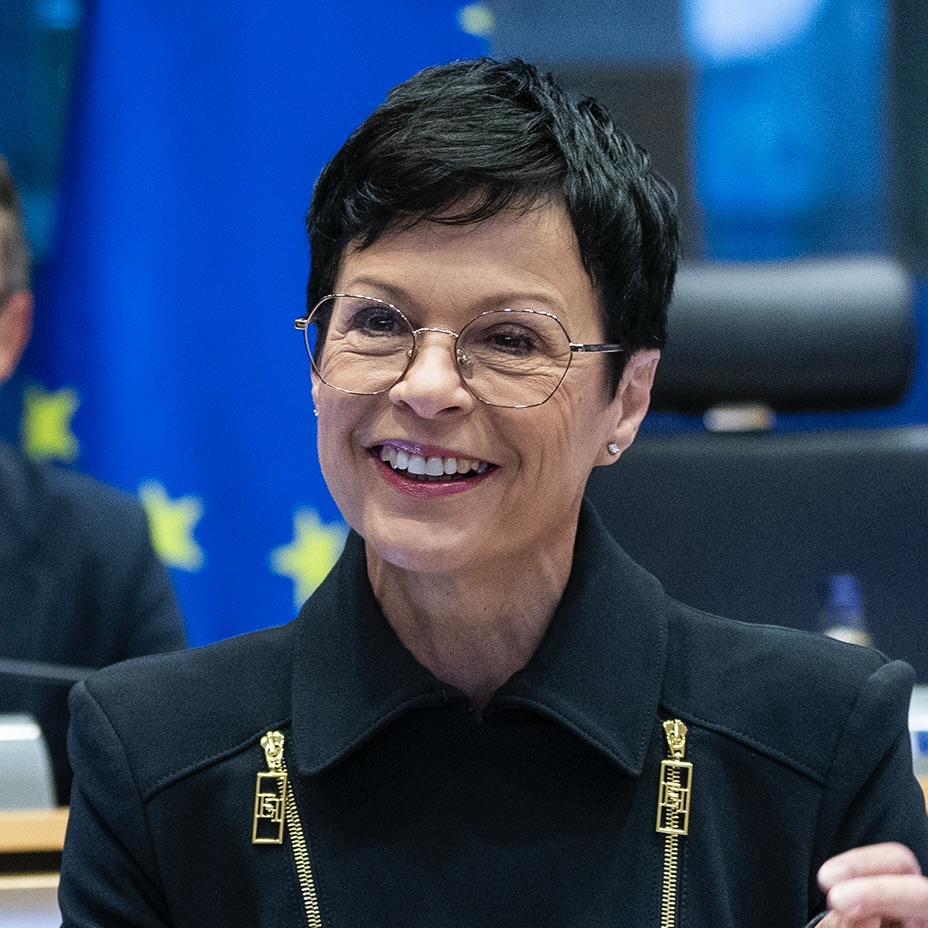
Marta Kos
Commissioner-designate for enlargement
From Washington’s perspective, the recent hearings underscored the pragmatic approach that Commissioner-designate Marta Kos brings to EU enlargement—a shift marked by her endorsement of a “merit-based” process grounded in EU values, the rule of law, and rigorous quality standards. Kos made it clear that the rapid, “big bang” expansion of 2004, when ten countries joined in one stroke, is not a model she plans to replicate. Her view of enlargement as a “marathon, not a sprint” signals a strong preference for deliberate progress over geopolitical expediency, a stance that will get the attention of many in Washington.
Kos’s firm position on keeping accession standards high, even for nations under Russian pressure such as Ukraine and Moldova, signals to Washington that the EU’s path to enlargement will remain careful and measured. This likely tempers any expectations for accelerated EU membership for these countries, pushing the United States to consider more strategic, long-term support for their alignment with EU norms.
Her “no rule of law, no money” approach reinforces the principle of conditionality, which Washington sees as vital for robust EU integration. Kos’s “zero tolerance” stance on civil society infringements and her insistence on legal reforms before financial support provide assurance to Washington that EU enlargement remains both rigorous and values-driven, aligning with broader transatlantic priorities for stability and governance in the region.
—Ilva Tare is a resident senior fellow at the Atlantic Council’s Europe Center. Read her recent essay “Working on a new transatlantic approach toward the Western Balkans.”
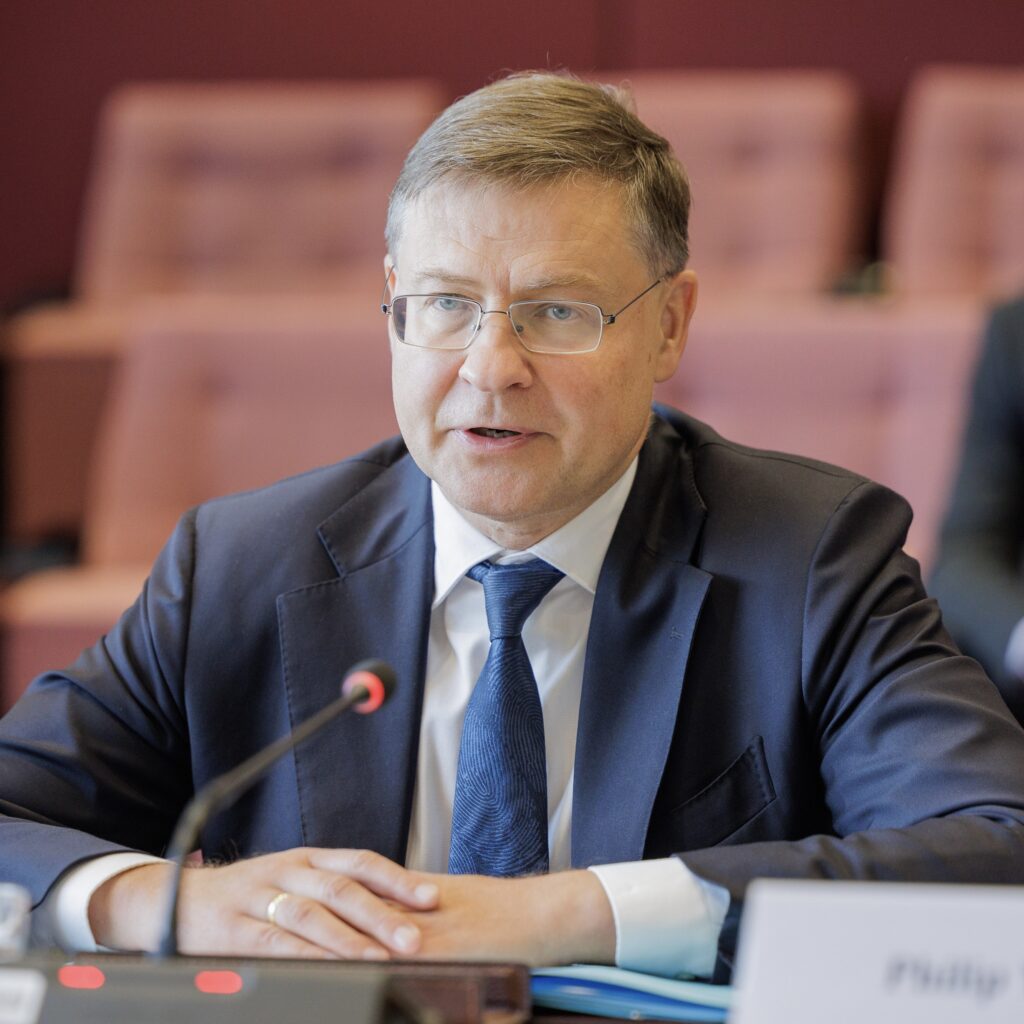
Valdis Dombrovskis
Commissioner-designate for economy and productivity; implementation and simplification
Europe’s seasoned economic czar, Valdis Dombrovskis, an outgoing commission executive vice president and well-known figure among transatlantic circles in Washington, is poised to serve as the new European commissioner for economy and productivity, and for implementation and simplification. The newly established portfolio centers on Europe’s buzzword of the year: “competitiveness.” He inherits Enrico Letta’s report on the future of the single market, Mario Draghi’s European competitiveness report, and the European Commission’s annual report, providing him with a wide and ambitious scope of policy recommendations to implement.
Throughout his extensive hearing, Dombrovskis outlined four pillars guiding his mandate: “coherence (when shaping economic policies),” “sound fundamentals,” “less red tape,” and “a strong European voice when shaping global economic policies.” Prioritizing investments in clean tech, artificial intelligence, quantum, semiconductors, and defense, Dombrovskis is aligned with von der Leyen’s economic security agenda. Endorsing Letta’s and Draghi’s recommendation of a unified capital union, Dombrovskis called for “deepening and broadening” Europe’s capital markets to increase access to finance for companies to expand.
In his new role, Dombrovskis will immediately face significant challenges. He must navigate the intrinsic structural constraints of the EU, adhering to the EU’s fiscal rules—reassuring the more fiscally conservative member states—against the urgency to reignite the eurozone’s economic engine, potentially supporting common EU borrowing. Also, reconciling Europe’s “competitiveness objectives” with “coordinated national policies” will not be easy, especially ahead of negotiations over the EU’s long-term budget. Another complex balancing act will be simplifying regulations without compromising policy goals or standards, given the forces in the European Parliament calling for scaling back climate targets.
Washington will have a reliable and skilled partner in Dombrovskis, who is a relentless advocate of solving transatlantic trade disputes. When he was previously the executive vice president of the Commission responsible for the economy, Dombrovskis showed his ability to navigate often difficult trade discussions with the first Trump administration, including by negotiating with the then US trade representative and tariff proponent, Robert Lighthizer. As outgoing Commissioner, he did not back down against Beijing’s diplomatic and commercial pressure to avert the EU’s countervailing tariffs on Chinese electrical vehicles earlier this year, withstanding calls from Berlin to reverse the decision. Dombrovskis’s firm economic policy stance toward China resonates well with China hawks in Washington. Finally, Dombrovskis’s commitment to reducing “excessive red tape” and expanding “consultations with stakeholders” to streamline regulations—with directives impacting US investments such as the EU’s Corporate Sustainability Reporting Directive or Deforestation Regulation—could draw Washington’s less-transatlantic-oriented engagement back to Brussels.
—Jacopo Pastorelli is a program assistant in the Atlantic Council’s Europe Center.

Teresa Ribera Rodríguez
Executive vice-president-designate for the clean, just, and competitive transition
Teresa Ribera, a climate specialist and current minister for the ecological transition of Spain, has been tapped to become perhaps the EU’s second-most powerful figure after von der Leyen. The recent deadly floods in Spain loomed large in her hearing, as far-right and center-right Spanish lawmakers attempted to blame her for the tragedy. Despite numerous pointed and often personal attacks, Ribera remained level-headed. But the turmoil, which is unusual for the Commission, perhaps signals a new era of partisan showmanship from the right—particularly when it comes to attacking green policy.
Ribera remained cool, collected, and to the point when discussing reforms of competition regulations, which need to evolve to meet the EU’s ongoing green transition. She was less forthcoming about the long-anticipated Clean Industrial Deal that is expected within the next few months, and notably sidestepped questions on the role of nuclear in EU funding.
Washington will face a clear vision in the EU that ties its green transition to market competitiveness. The incoming Trump administration, which is likely to slash climate-forward initiatives and sells itself as a tough negotiator focused on prioritizing American manufacturing, could find itself behind the curve compared to the EU when it comes to dominating the inevitable global transition to green energy.
—Carol Schaeffer is a nonresident senior fellow with the Atlantic Council’s Europe Center, host of the Transform Europe Debrief series, and a reporting and journalism fellow with the Jain Family Institute, focusing on decarbonization, the energy transition, and European policy. Read her recent essay “Treating the green transition like the geopolitical imperative it is.”
***
If confirmed, Ribera will serve in an executive vice president position with dual responsibilities: implementing Europe’s climate targets, including through the upcoming Clean Industrial Deal, and reforming the EU’s competition policy to strengthen the single market and support industrial scalability. The synthesis of these two portfolios cements the Draghi Report’s vision to expand the EU’s clean technology leadership to enable its industrial and geopolitical competitiveness.
Ribera is an experienced hand and would come into the role well-equipped to realize these objectives. She is currently serving as Spain’s minister for ecological transition and is a former director of the Institute for Sustainable Development and International Relations, where she directly contributed to designing the Paris Climate Agreement. As such, members of the European Parliament were particularly interested in testing Ribera’s competition policy chops, and she passed.
Ribera’s hearing hinted at the EU’s ambitious green agenda for the next five years, but some details remain vague. She emphasized that the upcoming Clean Industrial Deal must strengthen “the business case for decarbonization” by mobilizing private investment through increased state aid, a future European Competitiveness Fund, and scaling innovations through a revamped Important Projects of Common Interest program. She sidestepped the specifics of Draghi’s proposed “New Competition Tool” but emphasized the importance of maintaining the integrity of competition rules while loosening merger restrictions for companies seeking to scale globally. Ribera pinpointed the Foreign Subsidies Regulation and Digital Markets Act as two key foreign economic policies to police trade distortions and digital monopolies, suggesting that the US-EU trade agenda will remain consistent.
Ribera’s hearing, which featured politicized exchanges from members of the European Parliament on recent floods in Valencia, underscores that industrial decarbonization will remain a contentious policy objective. Nonetheless, the Commission’s appetite for industrial policy has only grown.
—Thomas Goldstein is a young global professional with the Europe Center.
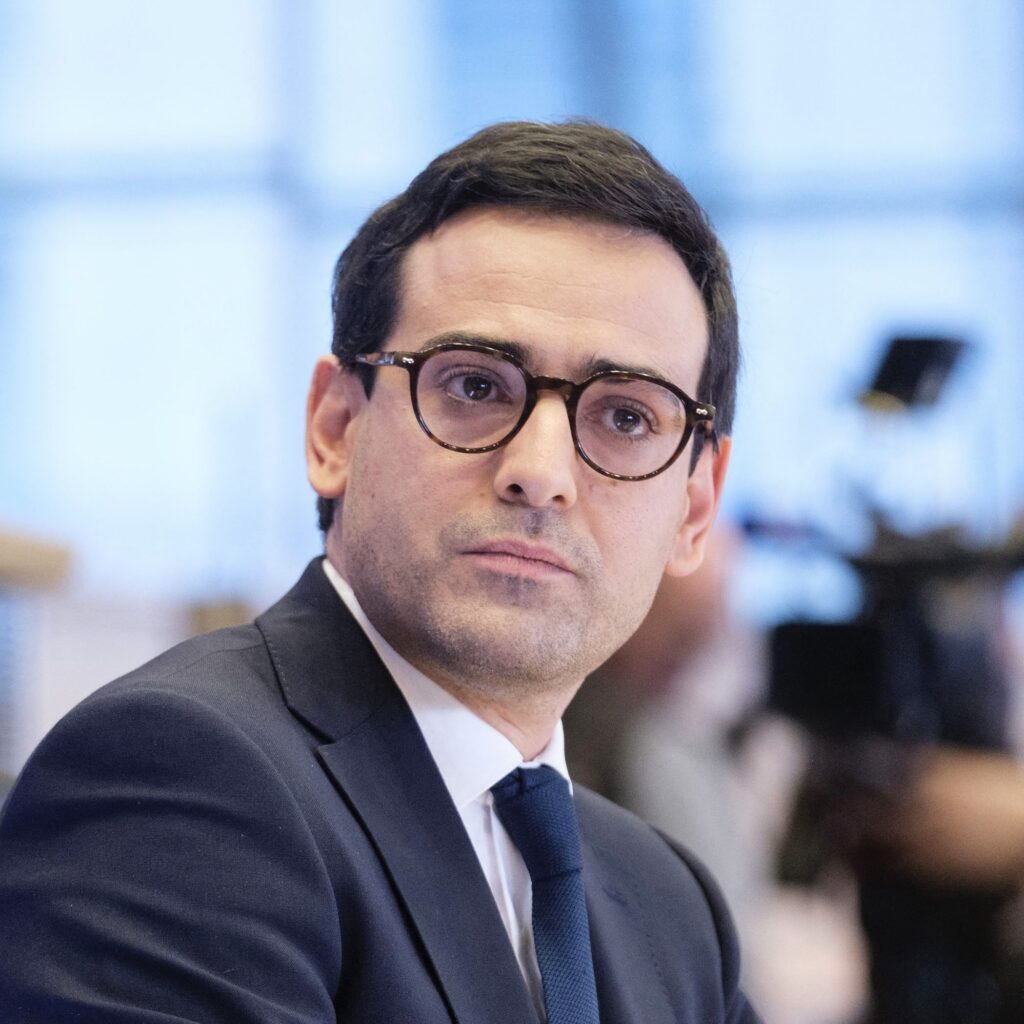
Stéphane Séjourné
Executive vice-president-designate for prosperity and industrial strategy
The confirmation hearing for Stéphane Séjourné to be executive vice-president of for prosperity and industrial strategy centered on realizing, as Séjourné put it in his written remarks, “a clean industrial strategy with a stronger single market to help avoid Europe’s forecast decline as well as its dreadful social and political consequences.”
From his hearing, there was little to indicate his stances one way or the other on transatlantic trade and investment (or any other) relations under the new Commission. This is unfortunate, because the executive vice-president-designate is not only responsible for the EU’s industrial strategy, which will almost certainly have an impact on US-EU trade and investment relations, but also oversees the portfolio of the trade commissioner, which integrates international trade with economic security and tax and customs policy. The design and placement of these portfolios hinted at an integrated approach that would help ensure that industrial policies would both benefit from the support of appropriate trade and economic security tools and avoid trade clashes that domestic industrial policies and unilateral economic security measures could otherwise produce. One might even hope that cooperation in these three areas with the United States would increase the chances of success for both trade partners.
There was evidence at the hearing of a certain like-mindedness with the United States that could be the basis for improved trade and investment cooperation—notably, he made several references to the need to protect European industries from unfair trade and excess capacity in China—and he briefly referenced the desire to avoid a “trade war” with the United States. But his significant focus on building up specific European strategic sectors, with no discussion of steps to avoid potential resulting trade clashes, was a notable and perhaps troubling omission.
—L. Daniel Mullaney is a nonresident senior fellow with the Atlantic Council’s Europe Center and GeoEconomics Center. He served as assistant US trade representative for Europe and the Middle East in the Office of the United States Trade Representative from 2010 to 2023.
***
Séjourné’s answers revolved around the need for a more European and strategic approach to competition policy. Deepening the single market, reforming and simplifying public procurement, and moving toward a capital market union all featured prominently. Beyond purely economic aspects, Séjourné emphasized the necessity of a more consciously strategic perspective on issues such as protecting critical European industries and reducing import dependencies.
Many of these priorities stemmed directly from Draghi’s report, which lays out a blueprint for bridging the competitiveness gap between Europe on one side and China and the United States on the other.
While many of his answers are linked to the Draghi report, he also brought a notably French perspective in some areas. Séjourné repeatedly brought up the issue of “strategic autonomy,” a favorite buzzword of French policymakers. Séjourné likewise emphasized the need to deploy trade defense measures to protect European strategic industries, such as chemicals, aluminum, and steel. He also expressed skepticism toward the EU’s trade agreement with Mercosur, and he put his sights on Chinese overcapacity as a major threat to European competitiveness. Paris is highly critical of the Mercosur deal and was a strong supporter of the EU’s tariffs on Chinese electric vehicles. Séjourné’s views on Beijing are likely to be welcome in Washington, whereas his support for trade defense measures in other strategic sectors may be less well received there.
However, some major questions remain unanswered after his hearing. While Séjourné has echoed Draghi’s call for Europe to increase its annual investment by eight hundred billion euros, he was vague on how to reach that goal. He was similarly vague on exactly how the EU should move toward a full capital market.
—Ian Cameron is a young global professional with the Europe Center.
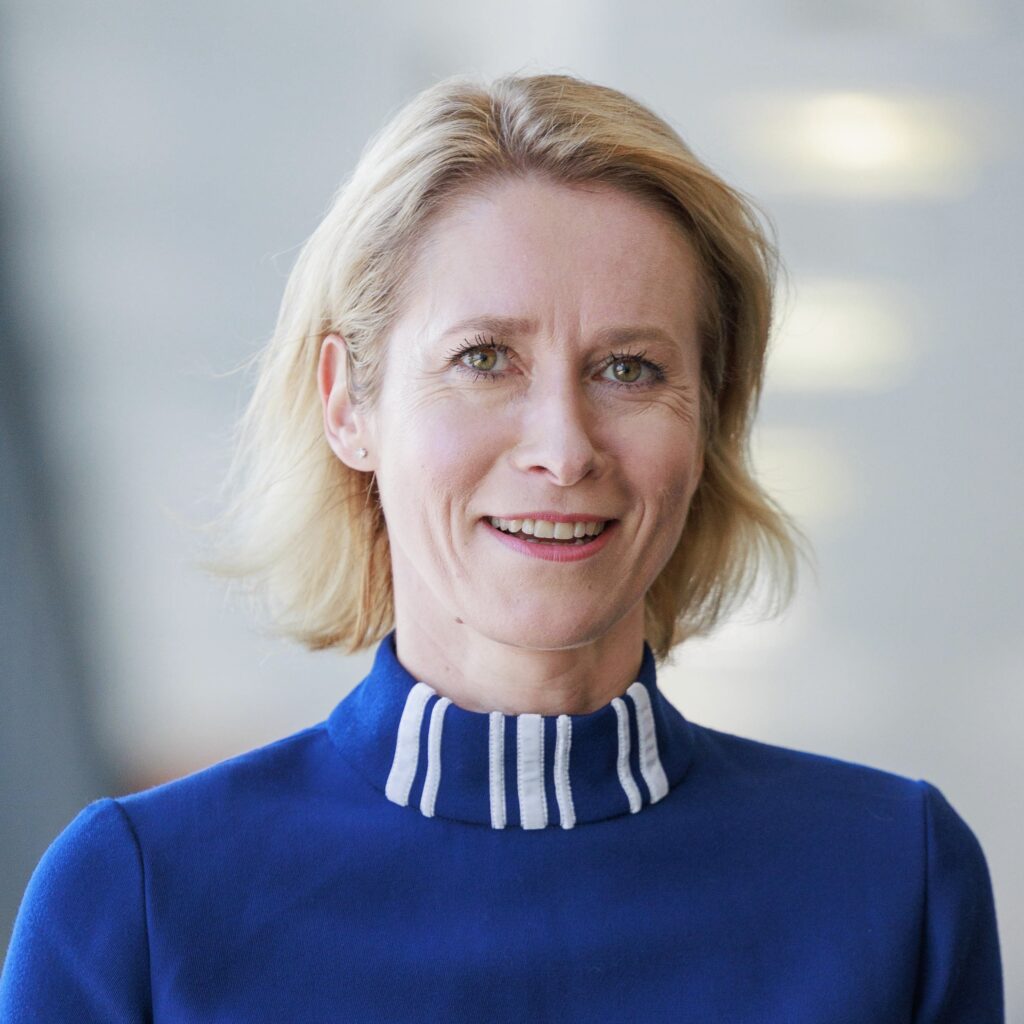
Kaja Kallas
High representative for foreign affairs and security policy and vice-president-designate of the European Commission
In her hearing before the European Parliament, former Estonian Prime Minister Kaja Kallas masterfully demonstrated why she is such a formidable candidate for EU high representative for foreign affairs and security policy.
Known as a strong European and transatlanticist at her core, Kallas called on the EU to band together in a turbulent geopolitical environment. She said the EU should do far more for its own defense to deter Russia but cautioned against parallel EU defense structures that could duplicate NATO—likely disappointing proponents of European strategic autonomy. She offered a full-hearted defense of Ukraine’s fight against Russia, calling on Europe to do more to secure a Ukrainian “victory” including by offering Ukraine a clear EU membership path, utilizing all the frozen Russian sovereign assets to rebuild Ukraine, and ramping up sanctions against Russia.
On China, Kallas’s comments will go down well with the incoming Trump administration. Departing from the standard EU line, Kallas said the EU should treat China as a “competitor” and “strategic rival” instead of as a “partner.” She also warned against the growing links between China, Russia, Iran, and North Korea.
Compared to Josep Borrell, the current EU high representative for foreign affairs, Kallas has the potential to be more influential in this role and ensure close alignment with von der Leyen. Referring to the United States as the EU’s “biggest ally,” Kallas reaffirmed that the EU will continue to engage closely with the incoming Trump administration.
—Erik Brattberg is a nonresident senior fellow at the Atlantic Council’s Europe Center. He is also senior vice president in the Europe practice of the Albright Stonebridge Group, part of DGA Group.
***
Kallas’s testimony can be defined by one word: more. More ambition, more action, and more Europe. But also more threats, more challengers, and more urgency. On paper, Washington should have much to like about Kallas’s vision for Europe, but she will have her work cut out for her to translate her grand ambitions into reality.
In the hearing, Kallas brought her hawkishness, which came to define her leadership as the former prime minister of Estonia. She laid out a tour de table of the EU’s priorities, starting by naming the likes of Russia, China, Iran, and North Korea as challengers looking to revise the world order.
In response, Kallas argued the EU was needed in more places and with more ambition. In Europe, her priority is supporting Ukraine for as long as it takes—and for working to help Ukraine achieve victory against Russia—with Europe increasing military and economic support to Kyiv and for Europe’s own security. Abroad, she pushed for a larger EU role in the Indo-Pacific, a rejuvenated EU-India partnership, a stronger security relationship with the United Kingdom, and a partnership of equals with Africa.
Kallas’s diagnosis of today’s geopolitics sounds similar to that of many in Washington, and her framing seemed to speak directly to incoming officials in the United States. Her answers highlighting the interconnectedness of global threats also serves as a reminder to Washington’s China-firsters. She stressed that whatever happens in Ukraine serves as a testing ground for other challengers like China, and she argued that Beijing should face steeper costs for its support of Russia. “If aggression pays off somewhere it serves as an invitation to use it elsewhere,” she stated.
Kallas’s vision and ambition is welcome, especially as a Trump presidency throws US commitment to Europe into question. Kallas was, as she herself noted, the one who proposed Europe purchase one million rounds of 155mm shells for Ukraine, a move that those demanding Europe do more should appreciate. However, by Kallas’s own admission, she will still face the challenges that the role of EU foreign policy chief cannot avoid: member states still primarily drive national security and defense policies. She will have to navigate the structural issues of securing members’ unanimity on key decisions, and her aspirations will need to be fleshed out with important details if she is to steer the tanker that is EU decision making on today’s critical security and defense needs.
—James Batchik is an associate director at the Atlantic Council’s Europe Center.
Further reading
Mon, Oct 7, 2024
Foreword: A new agenda for the next four years of US-EU relations
Report By Daniel Fried, Jörn Fleck
The transatlantic partnership, powered by the US-EU relationship, is a geopolitical necessity. From the other side of the world to each other’s backyards and into cyberspace, Washington and Brussels need each other.
Mon, Oct 7, 2024
Transatlantic horizons: A collaborative US-EU policy agenda for 2025 and beyond
Report By
With new leadership on both sides of the Atlantic, this report outlines an agenda for common action for the next US administration and European Commission.
Mon, Oct 7, 2024
Unleashing US-EU defense cooperation
Report By Rachel Rizzo
Instead of pushing back against European defense efforts as it has done in the past, Washington must fully embrace the steps the European Union is now taking.
Image: Kaja Kallas, designate for the post of the Vice-President of the European Commission and High Representative of the Union for Foreign Affairs and Security Policy, faces a confirmation hearing before the European Parliament's Foreign Affairs Committee, in Brussels, Belgium November 12, 2024. REUTERS/Johanna Geron

